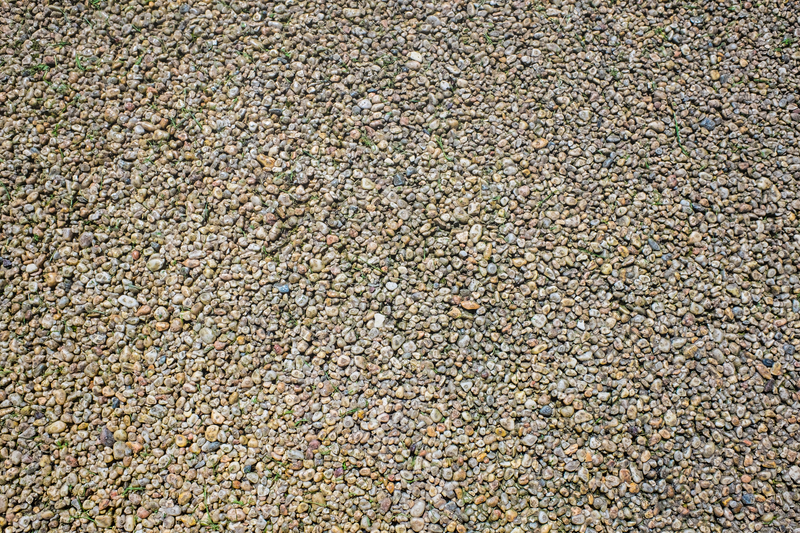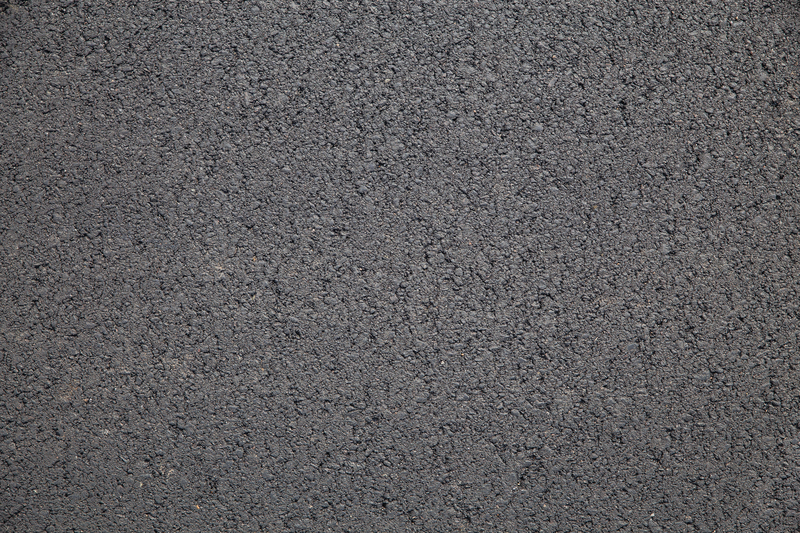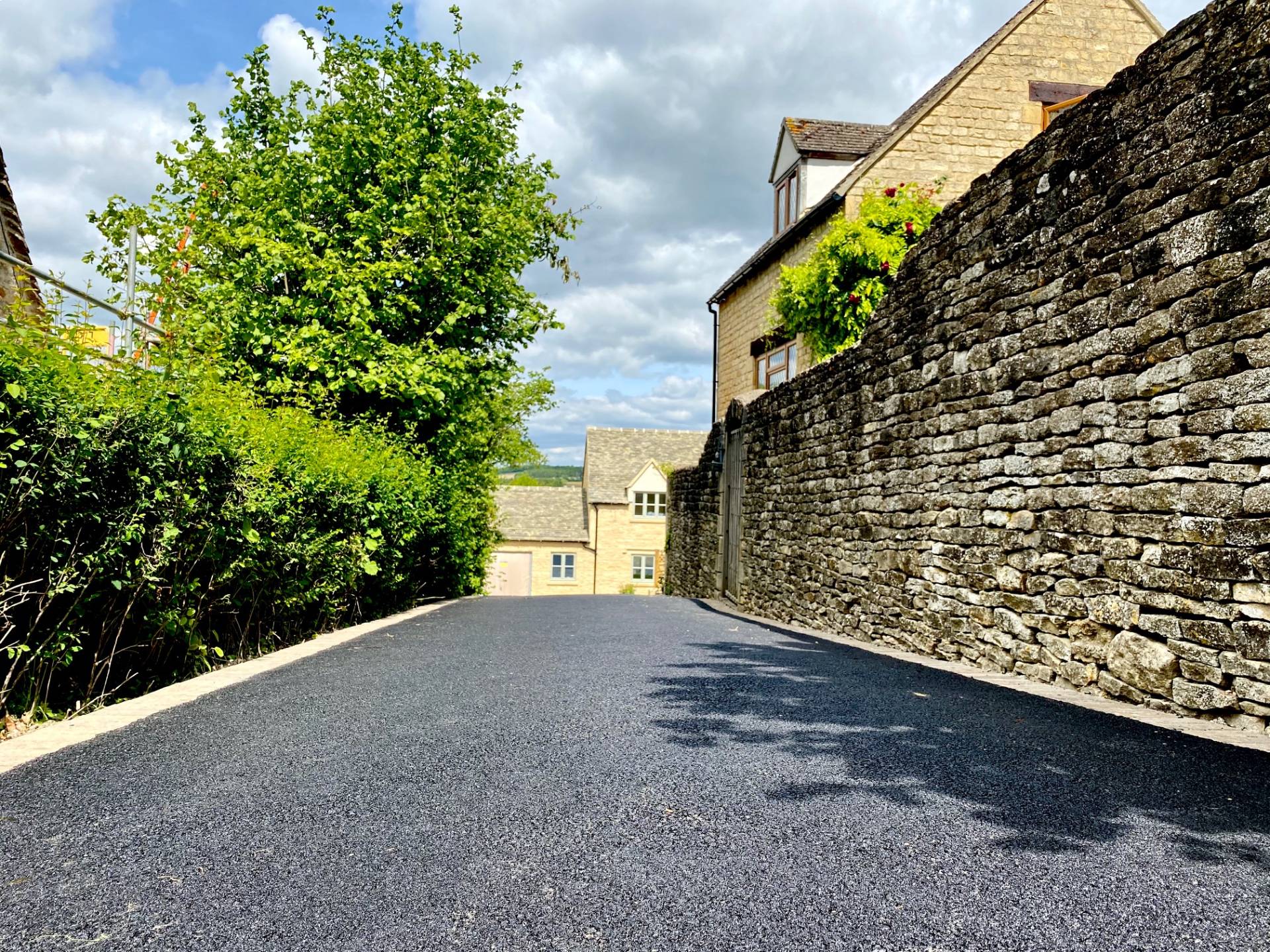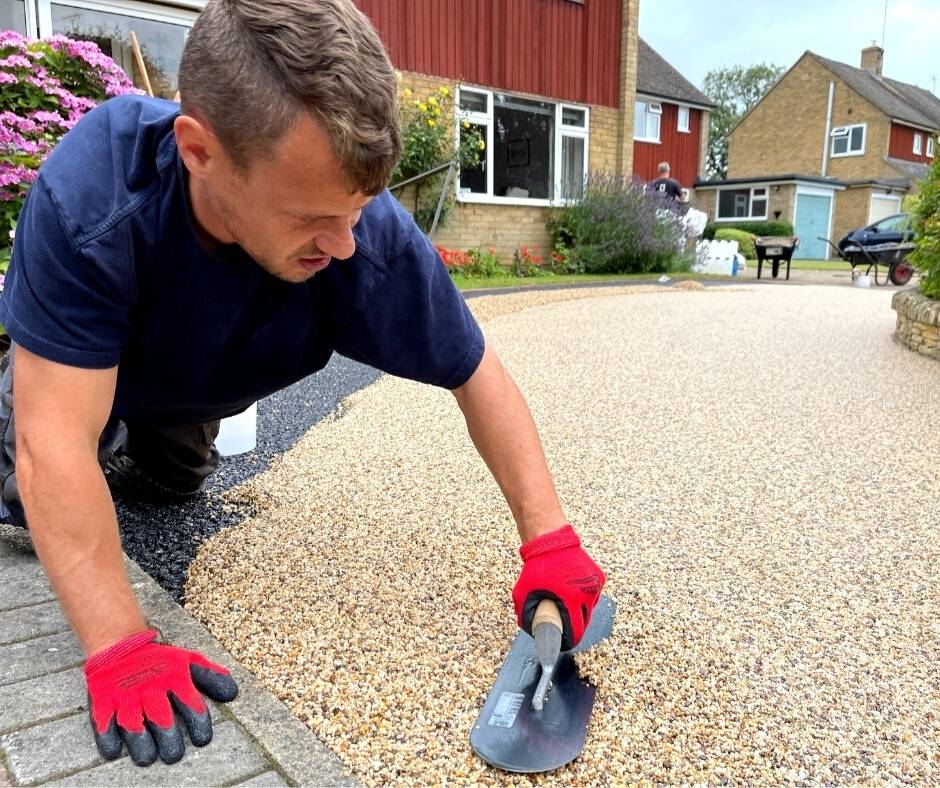
ARE RESIN DRIVEWAYS BETTER THAN TARMAC?
Blog
The choice between resin driveways and tarmac surfaces is a common dilemma when deciding on the material for your driveway. Your driveway isn't just a path; it's the first impression of your home, and deciding on what material to use is crucial.
In this blog, we'll walk you through the pros and cons of each, helping you understand which one might best fit your unique needs and style. Let's start this journey together to determine which driveway material could be the perfect match for your home!
Understanding Resin Driveways
Resin driveways offer a contemporary and visually appealing option for surfacing your driveway. These driveways are crafted by blending natural aggregate with a clear resin, resulting in a seamless and elegant finish that stands out from traditional tarmac or concrete surfaces.
One of the defining characteristics of resin driveways is their modern aesthetic appeal, which can instantly enhance the overall look of your property. Additionally, they boast permeability, allowing water to effortlessly seep through the surface, minimising the risk of flooding and water pooling issues. Moreover, the durability of resin driveways is a notable advantage, as they can withstand heavy loads without showing signs of cracking or deterioration.
Benefits of Resin Driveways
Selecting the right driveway surface is crucial when it comes to enhancing the curb appeal and functionality of your property. Resin driveways have emerged as a popular choice for homeowners seeking a blend of style, durability, and practicality. Offering a contemporary aesthetic, permeability, and low maintenance requirements, resin driveways present a compelling option for those looking to elevate the look and functionality of their driveways.
Let's take a look at some of the main benefits of choosing a resin driveway:
- Aesthetic Appeal: Resin driveways offer a modern and stylish look, enhancing the overall appearance of your property with a range of colours and finishes to choose from.
- Permeability: The permeable nature of resin driveways allows water to drain through the surface, reducing the risk of flooding and water pooling, particularly beneficial for drainage management.
- Durability: Resin driveways are known for their durability, able to withstand heavy loads without cracking easily, providing a long-lasting surfacing solution for your driveway.
- Low Maintenance: These driveways require minimal maintenance, saving you time and effort in upkeep compared to other surfacing options like tarmac or concrete.
- Customisation: Resin driveways offer a high level of customisation, allowing you to tailor the design to match your home's style and create a unique look for your driveway.
- Safety: The smooth finish of resin driveways can enhance safety by reducing trip hazards and offering a more stable surface for walking and vehicle use.
- UV Resistance: Some resin driveway materials are UV resistant, helping to maintain their color and appearance over time, even with prolonged exposure to sunlight.
Understanding Tarmac Driveways
Tarmac driveways is a popular and traditional material for surfacing residential driveways. These driveways are constructed using a mixture of aggregate particles, hot mix tarmac and bitumen, creating a durable and hard-wearing surface that is commonly seen in many homes.
A tarmac driveway is commonly chosen for their practicality and low maintenance requirements, making them popular for residential properties.
Benefits of a tarmac driveway
Known for their quick installation, stain resistance, and durability, tarmac driveways offer homeowners a reliable and visually appealing option for enhancing the exterior of their properties. Let's take a look at the main benefits of a tarmac driveway:
- Cost-Effectiveness: Tarmac driveways are known for their affordability, providing a cost-effective surfacing option for homeowners looking to improve their property's exterior without breaking the bank.
- Quick Installation: The fast installation process of tarmac driveways minimises disruption, allowing you to enjoy your new driveway in a shorter timeframe than other surfacing options.
- Stain Resistance: Tarmac surfaces are resistant to stains, making them less prone to visible marks from oil spills or other substances, ensuring a cleaner appearance over time.
- Durability: Tarmac driveways are durable and can withstand heavy loads, offering a long-lasting surfacing solution that holds up well under regular use and traffic.
- Versatility: Tarmac driveways are versatile and suitable for various property styles, blending well with architectural designs and landscaping features.
- Low Maintenance: While some maintenance is required, tarmac driveways generally have lower upkeep needs than other materials, saving time and effort in the long run. (E.g. you can buy cold lay tarmac to help with potholes and cracks.)
- Classic Look: Tarmac driveways provide a classic and uniform appearance that appeals to those seeking a traditional aesthetic for their property's exterior.
So, which driveway option is best?
So, now that we have seen the benefits of both driveway options – resin driveways and tarmac surfaces – let's delve into a comparative analysis to understand how these materials stack up against each other so you can best decide which option is best for your new or existing driveway.
1) Overall Cost
Resin Driveways:
Resin driveways usually entail a higher initial cost per square metre due to the quality materials and diverse customisation options available. While the upfront investment may be more significant, the long-term benefits of aesthetics and durability can outweigh the initial expense.
Tarmac Surfaces:
In contrast, tarmac driveways are renowned for their budget-friendly nature at the outset. Ideal for individuals seeking a cost-effective surfacing solution, tarmac surfaces offer an economical option without compromising on functionality or performance. This affordability makes tarmac driveways a practical choice for those prioritising financial considerations when upgrading their property's driveway.
2) Installation
Resin Driveways:
Resin driveways offer a relatively simple installation process with fewer layers and requirements than tarmac. Applying the resin mixture directly onto a prepared surface, coupled with efficient curing methods, can result in quicker installation times. Some homeowners may even consider DIY resin driveway kits for smaller areas, making the installation more accessible and potentially more cost-effective.
Tarmac Driveways:
Tarmac driveway installation tends to involve a more complex process, requiring specialised equipment for compaction and multiple layers of material - meaning labour cost may be something to consider.
To tarmac a drive can be a labour-intensive nature part of the tarmac installation process and proper base preparation and layer application often necessitate professional involvement to ensure quality results and durability. This means that while the cost of the tarmac drive is typically lower than resin, depending on the size, tarmac driveway costs can fluctuate with the labour costs required.
3) Maintenance:
Resin Driveways:
The upkeep of resin driveways is characterised by its simplicity, requiring minimal maintenance efforts. Routine cleaning sessions are typically sufficient to preserve the pristine appearance of resin surfaces, offering homeowners a hassle-free solution that enhances curb appeal with ease.
Tarmac Surfaces:
In contrast, most tarmac driveways often demand more diligent maintenance practices to safeguard their condition over time. Tasks such as resealing and periodic repairs may be necessary to combat wear and tear, ensuring the longevity and structural integrity of tarmac surfaces. While tarmac driveways offer durability, their maintenance requirements may be more intensive compared to resin driveways, making the cost of a tarmac drive more expensive overtime.
4) Durability:
Resin Driveways:
Renowned for their robust nature, resin driveways boast impressive durability and resilience against cracking. This attribute makes them a reliable choice for homeowners seeking a long-lasting surfacing solution capable of withstanding frequent use and varying weather conditions.
Tarmac Surfaces:
While tarmac driveways also exhibit durability and are weather resistant - they might be more susceptible to cracking over time, particularly when subjected to heavy loads. This characteristic necessitates periodic maintenance and repairs to ensure the longevity and structural integrity of the driveway surface. Despite this, tarmac surfaces offer a solid and durable option for properties requiring a sturdy and functional driveway.
5) Aesthetic Options:
Resin Driveways:
Embracing a realm of creative potential, resin driveways stand out for their vast array of aesthetic possibilities. From a spectrum of colours to diverse finishes and customisation options, resin driveways allow homeowners to tailor their driveway to reflect their unique design preferences and style sensibilities.
Tarmac Surfaces:
In contrast, tarmac driveways exhibit a more restrained aesthetic appeal, typically characterised by a traditional black finish. The limited scope for customisation in tarmac surfaces may appeal to individuals seeking a classic and understated look for their driveway without the need for elaborate design elements. While tarmac driveways excel in simplicity, they may need more extensive aesthetic flexibility than resin driveways.
6) Environmental Impact:
Resin Driveways:
An environmentally conscious choice, resin driveways feature permeable properties that enable water to drain through them, mitigating runoff issues and promoting sustainable drainage practices. This eco-friendly characteristic positions resin driveways as a responsible option for homeowners looking to minimise their environmental impact while enhancing their property's exterior.
Tarmac Surfaces:
Conversely, tarmac driveways are non-permeable, leading to water runoff problems and challenges in drainage management. The non-porous nature of tarmac surfaces contributes to a higher environmental impact concerning water drainage, highlighting the importance of considering sustainable alternatives like resin driveways for properties aiming to prioritise eco-conscious solutions.
Suitability
When deciding between resin driveways and tarmac surfaces, your choice ultimately hinges on your priorities and specific preferences. Here's a breakdown to help guide your decision:
Resin Driveways: Opt for resin driveways if you prioritise customisation, durability, and a contemporary aesthetic. With a wide range of design options, exceptional durability, and modern appeal, resin driveways are ideal for homeowners seeking a personalised, long-lasting surfacing solution.
Tarmac Surfaces: Choose tarmac surfaces if cost-effectiveness, traditional charm, and straightforward installation are paramount considerations. Tarmac driveways offer a budget-friendly option with a classic look, making them suitable for those prioritising economic efficiency and simplicity in their driveway project.
Consider factors such as your budget, desired maintenance level, aesthetic preferences, and environmental concerns when making your decision. By evaluating these aspects, you can determine whether resin driveways or tarmac surfaces better align with your unique driveway requirements and overall vision for your property's exterior enhancement.
Things to Consider
When contemplating the ideal material for your driveway, one crucial aspect that demands thoughtful consideration is the interplay between location and climate. The environmental conditions in which your driveway will endure play a pivotal role in determining the most suitable surfacing option.
Permeable Surfaces
Permeable driveways, also known as porous or permeable pavement, are innovative surfacing solutions designed to allow water to infiltrate through the surface into the underlying ground. Unlike traditional impermeable surfaces like concrete or asphalt, permeable driveways feature materials and construction techniques that enable water to pass through, promoting natural drainage processes.
This permeability helps reduce stormwater runoff, minimises flooding risks, and aids in groundwater recharge by allowing rainwater to percolate into the soil beneath the driveway. Permeable driveways are environmentally friendly, sustainable alternatives that support effective water management and contribute to reducing the impact of urban development on natural water systems.
Resin Driveways:
Due to their porous nature, resin driveways are inherently permeable. The material used in resin driveways allows water to drain through the surface, aiding in effective water management and reducing runoff issues. This porous characteristic is advantageous in areas prone to heavy rainfall.
Tarmac Driveways:
Tarmac driveways, in contrast to resin driveways, are typically impermeable. The dense composition of tarmac surfaces inhibits water penetration, leading to increased surface runoff. Without natural drainage capabilities, tarmac driveways may contribute to water accumulation during heavy rainfall events.
So, what does this mean?
In places with heavy rainfall or extreme weather conditions, the choice between tarmac and resin driveways can become crucial. Resin driveways prove advantageous in such areas due to their permeable nature, facilitating effective water drainage and mitigating runoff problems.
Final Thoughts
Whether you prioritise durability, aesthetics, sustainability, or cost-effectiveness, understanding the nuances between resin driveways and tarmac surfaces empowers you to select a driveway material that aligns perfectly with your preferences and practical needs. Remember, the choice of driveway material plays a significant role in both the visual appeal of your property and its functionality, making it a decision worth thoughtful consideration.
If you want to know more about installing a new tarmac driveway, resin, gravel (crushed stone) or a block paving driveway, do not hesitate to contact us. Our team is here to create your dream driveway and answer your burning questions. From paving materials, additional costs to the schedule of getting a driveway installed - get in touch today.



